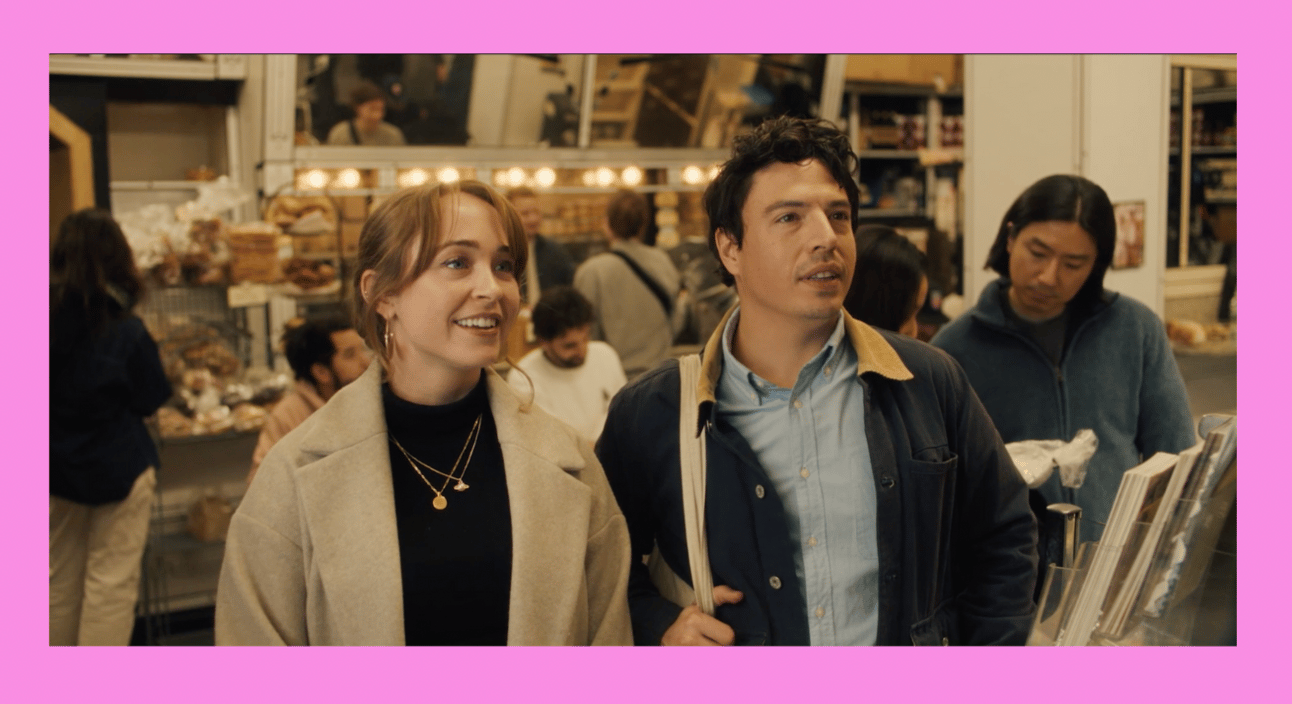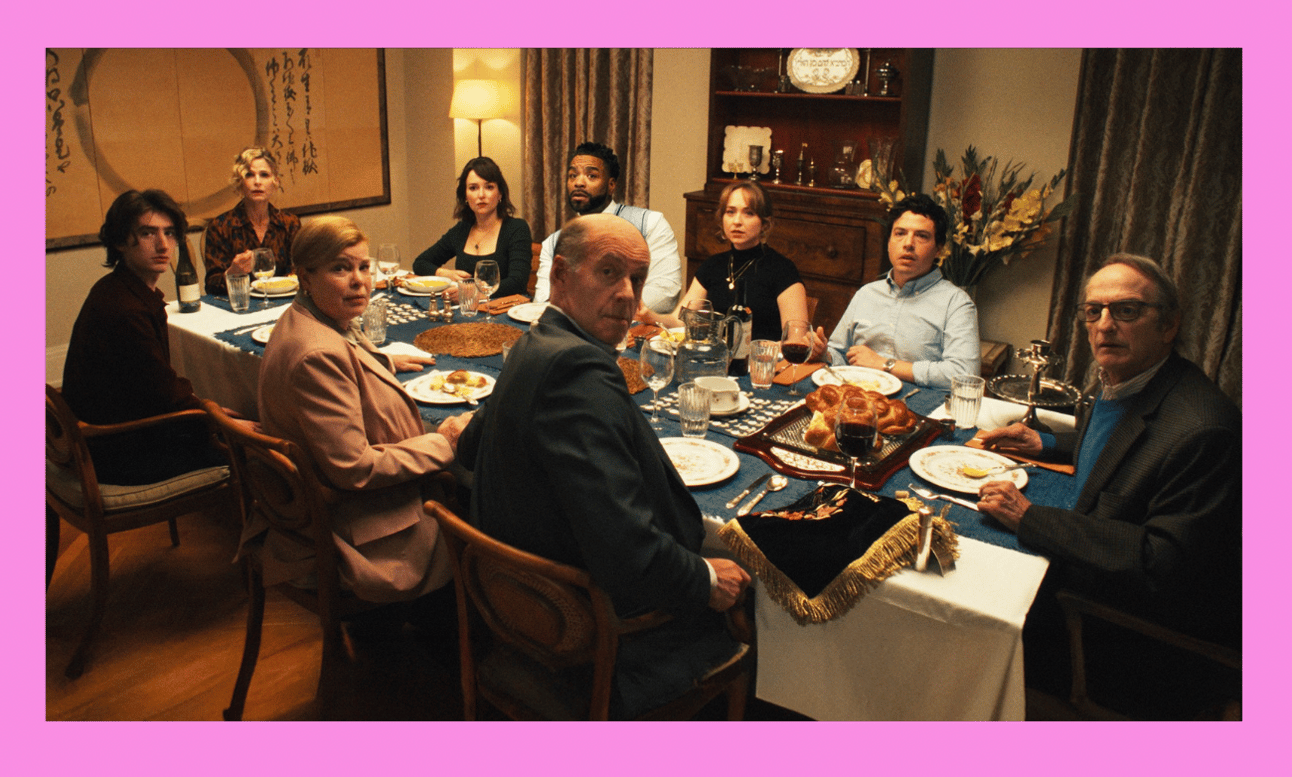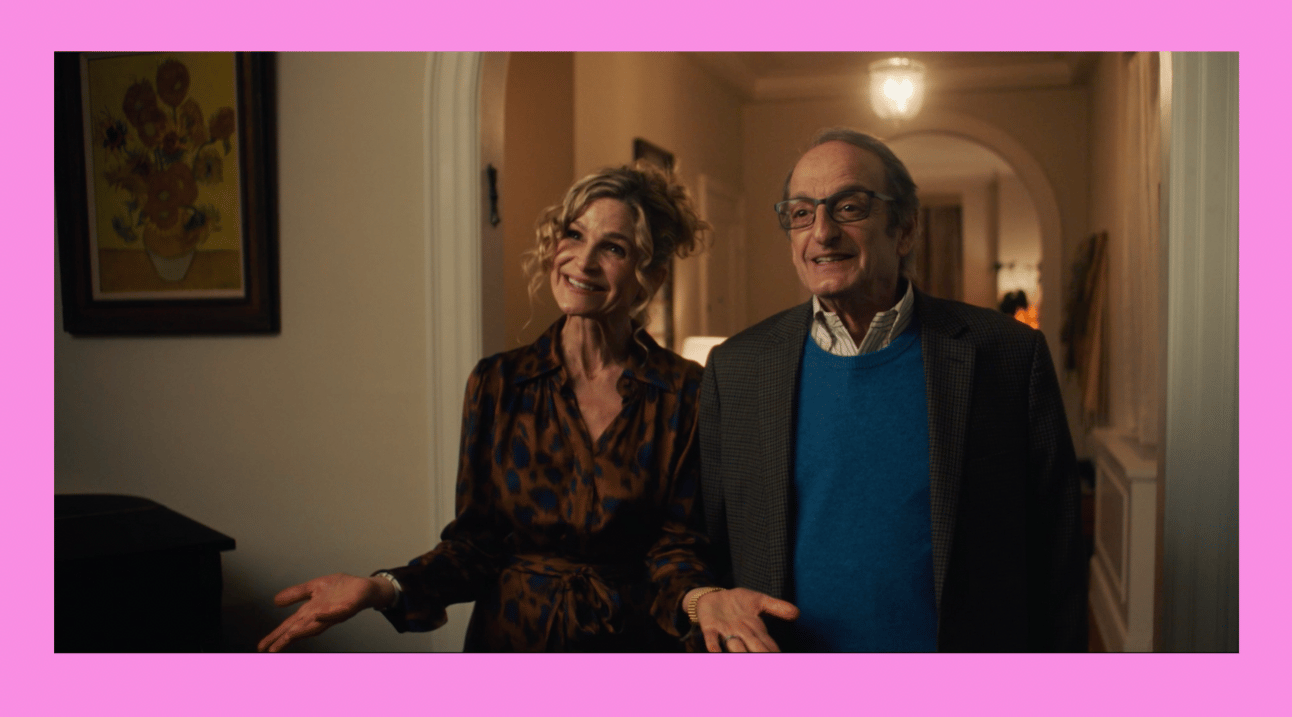- GOLDA
- Posts
- The Jewish Movie Everyone Is Talking About
The Jewish Movie Everyone Is Talking About
‘Bad Shabbos’ is a twist on the classic Jewish New York movie—and likely to be the hot topic at your next Shabbat dinner
Hey GOLDA gang,
I realized the movie Bad Shabbos was going to be big a few weeks ago, during the Q&A portion of an entirely unrelated event I was speaking at on Long Island. One of the audience members asked, “Have you seen this movie Bad Shabbos? One of my friends loved it. The other said it was totally offensive.”
Is there any better indicator of a good Jewish movie?
A few nights later I fired up a screener of Bad Shabbos on my laptop. Within seconds, I knew I was going to be hooked. The movie takes place on the Upper West Side of Manhattan, with opening shots featuring Zabar’s, Barney Greengrass, and the classic pre-war buildings that scream New York movie. But while Bad Shabbos may take stylistic cues from those films, it goes in an entirely unexpected direction.
Newly engaged couple David and Meg are heading to David’s parents’ apartment for Shabbat dinner, where Meg’s Catholic, Midwestern parents will be meeting them. The already precarious plan is complicated by the discovery of a dead body, and a lot of dark comedy ensues. The cast is fantastic, led by Kyra Sedgwick as the loving but overly involved matriarch, and featuring Cliff "Method Man" Smith as the doorman always ready to help his favorite family in the building—until things go a little too far.
I loved it, and I’m not the only one. Bad Shabbos won the Audience Award at last year’s Tribeca Festival, and is now playing at theaters around the country. I was excited to talk to the film’s co-writer and director, Daniel Robbins, about bringing his Modern Orthodox background to the big screen, and how to make authentic—and entertaining—Jewish art today.
Here’s our conversation.

Let’s start with the movie’s title. It’s called Bad Shabbos. It's not Bad Shabbat. It’s a play on “Good Shabbos,” which is a very specific phrase within the Jewish world. Tell us about that decision, and that distinction.
Like most decisions, it comes from instinct and what you feel is funny. We chose the title because it made us laugh. Our producer said, “A movie about Shabbat dinner, dead body—it's called Bad Shabbos.” I'm like, “Oh, that's amazing.”
But the reason it stuck is because “Good Shabbos” is the Modern Orthodox greeting. Part of what excited us about making this movie was to make a truly modern Orthodox movie. It feels like Judaism is often portrayed as either a light joke or Hasids doing crimes, and that's not how I grew up. I grew up surrounded by people who are in the secular world but take their faith seriously, and I think there's real dignity to it.
We wanted to make a movie that was authentic to how I grew up and showed Judaism in this loving light. It's not something that you have to run away from. Yes, it can be tough to navigate the differences with your family, but it can add meaning and beauty to someone's life.
Tell us a bit about your Jewish background, which is clearly a big influence in this movie.
I grew up in Westchester, New York, and went to Westchester Day School, and then high school at Ramaz on the Upper East Side. It’s all Modern Orthodox. My mom's more religious than my dad, and I'm somewhere in between.
All the items in the movie are from my mom's house. The whole crew had come over to her house for Shabbos dinner to see what it was like and experience it and just be with each other. We couldn't find Judaica for the movie that felt authentic, and the production designer said, “That stuff at your mom’s house was good—we should just use that.” So it's all stuff from my actual Shabbos table.

Why did you decide to set the film specifically on the Upper West Side, and what were some of your inspirations for a New York movie?
The decision to set the movie on the Upper West Side came from the fact that my co-writer, Zack Weiner, grew up there and I lived there, so we just knew it so well. That’s where we'd always have Shabbos. It also happens to be the backdrop of the great New York romantic comedies—When Harry Met Sally and You've Got Mail.
There are many punchlines in this movie, but being Jewish isn't one of them. And I think that’s what makes this movie stand out. There aren’t that many depictions lately of Jewish identity that take it seriously at its core.
My parents now think the yeshiva tuition was worth it because I was the Jewish consultant on set. We made sure to make it authentic. The prayer for lighting the candles, we wanted it to feel beautiful and show this great tradition that sets the stage for the Sabbath. The gemara that the dad brings up about the body with the infant and loaf of bread—that's a real gemara. We didn't make that up. I think the more real something feels, the funnier it is. So we just tried to get it right.
And you're right that we tried to avoid Judaism being a punchline. Jews are supposed to be the best at comedy, but I feel like when I see Jewish comedy, it’s just someone shouting “gefilte” or doing a loud oy. We're supposed to be better than this.
So one of our mantras was that we're not leaning into any of that stuff. I think it paid off.
How does it feel putting a very Jewish movie out there, knowing that a lot of your moviegoers will be Jews who may have varying opinions about it, some quite vociferously?
I love it. You know, two Jews, three opinions.
If you look at the history of My Big Fat Greek Wedding, the only people who complained about it were the Greeks. Everyone else was like, “We love it!” So far, we've had a 98% approval rating at screenings, and it's been seen by maybe 20,000 people at this point. But we have had some people who say, “I don't think it's good for the Jews, because you have Jewish characters doing questionable things, and someone's going to watch the movie and think, ‘Oh look, Jews are bad people.’”
It's a logical train of thought and their heart is in the right place, but it's not how audiences actually engage with art. People don't watch movies like a lawyer. They watch emotionally. I’ve found that if people connect to characters and understand them, they leave the movie liking them more. I've seen that when I go to our screenings, especially with non-Jewish viewers afterwards, they're lit up asking things like, “Is that what Shabbos is like? I want to turn my phone off.”
I know with The Sopranos and The Godfather, where Italian characters do awful things, it was a huge thing in that community: “What are people going to think of Italians?” But the net result for anyone watching those pieces of art is they like Italians more, because you hang out with the characters and just enjoy them. And the characters in this movie don't do anything close to as bad as what happens in those. But I still like the debate, because anytime you make a Jewish piece of art, you have to answer the question: Is it good for the Jews? And there are always going to be people on both sides.
It's funny, because when they say your movie shows Jews doing bad things, what it’s actually showing is Jews being human. It feels like Jews in film have to either be super pious or have to have left the fold and never looked back. There's no real nuance to this idea that we can just be people.
I like what you said better than what I said. I might start saying that.
We're so used to seeing movies where this is what the characters do. In our movie, we just happen to make them Jewish.
But I like that your non-Jewish viewers so far are way nicer about everything.
It’s the funniest thing. Another stark difference has been that a couple of Jewish viewers have said, “The movie's amazing, but we could have cut the D’var Torah.” They're so used to hearing it and just falling asleep. They have to listen to this thing every Friday or Saturday. But some non-Jewish viewers said, “Oh I love that Bible parable,” because this is something they're hearing for the first time.
But on the other hand, there are probably 70-plus jokes in the movie that you only get if you're Jewish.

I was going to ask you about casting Kyra Sedgwick as the Jewish matriarch. Then I looked it up and was like, “oh my God, she's Jewish.”
Every Jewish role in this movie is played by a Jewish actor, which is crazy. It's not actually my stance that that's a necessity, but it happened, and people are very happy about it.
Her character doesn’t always do great things, but she wasn’t offensive or unappealing in the way we're so used to seeing Jewish mothers portrayed. She's just complicated. I’m curious how you toed that line of wanting her to embody some of the stereotypes that we all sort of know and love about the Jewish mother—specifically how she’s overly involved in her kids’ lives and needs them there for Shabbat every week—but making her seem human at the same time.
I'm so happy you said that, and I hope Kyra hears it.
I might get the quote wrong, but someone said cliches aren't dangerous because they're wrong, but because they're superficial articulations of a much more complex truth. I think the cliche of the overbearing Jewish mother is just a simplification. The Jewish moms that I know are the most caring, loving people. And these same people sometimes don't accept a daughter-in-law because they might intersect with their faith, or they feel like they are losing their son.
Those two things conflicting is the heart of this character, and that was Kyra’s approach to it. She wanted to play this warm, loving person who is struggling that the woman her son is marrying might not continue her faith going forward. That's why we gave her that whole monologue, so audiences understand where she's coming from. Someone might feel like it's the stereotype, but I think it's actually the truth of what these situations usually are. And I think that's why Jewish moms have connected to the movie.
It’s an interesting time to be releasing a Jewish film into the world. But in a strange way, could this be the exact right movie for this moment?
We shot the movie before Oct. 7, and then after we were like, “This movie’s not going to work.” Everyone was so incensed, and Israel had become such a delicate topic. We have a character whose whole plotline is about wanting to join the IDF. We thought it probably wouldn’t work anymore. But then we got into Tribeca, and when we showed it, the audience went nuts and it won the Audience Award.
I think one reason was Jewish people being more excited about Jewish art than maybe they were before. And also non-Jews—I mean, the good ones, who are many—are excited about learning about Judaism and connecting to it in an approachable way. We kind of designed the movie in a way that a non-Jewish audience could come in knowing nothing and fully enjoy it. The point of view is from the non-Jewish fiancée. We tell the story through her eyes.
Can you share any Easter eggs, so to speak, that viewers should be looking out for in Bad Shabbos?
Here’s a good one: the D’var Torah that Meg says at the table is verbatim from a Rabbi Jonathan Sacks email. And the parsha that the D’var Torah is from lines up with when the movie takes place in the year. The movie is set in late November/early December, so we're in late Bereshit, and that’s where the D’var Torah is from. And it’s Rabbi Sacks, so that’s why it’s so good. He has a special thanks credit at the end of the movie. He’s the person I read the most, and his influence is definitely in there.
Thanks to Daniel for sharing some of the inspiration behind Bad Shabbos, and for adding to the canon of Jewish New York movies. You can find theaters and showtimes here.
We’ll be back in your inboxes on Friday with more summer fun. Until then, are you following us on Instagram? We’re at @goldaguide.
Stay GOLDA,
Stephanie

Reply